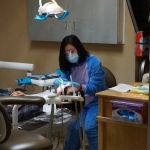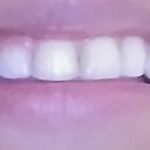How to Treat Oral Infections After Wisdom Teeth Extraction
- 1. Understanding Oral Infections After Wisdom Teeth Extraction
- 2. Common Symptoms of Oral Infections
- 3. Treatment Options for Oral Infections
- 4. Home Remedies to Soothe the Pain
- 5. When to Seek Medical Help for Oral Infections
1. Understanding Oral Infections After Wisdom Teeth Extraction
Oral infections are a common concern after wisdom teeth extraction. The procedure can create an opening in the gums where bacteria can enter and lead to infections. Wisdom teeth are located at the back of your mouth, making them more prone to complications. Infections are a result of bacteria finding their way into the socket left behind after the tooth is removed. While many people heal without issue, others experience pain, swelling, and more serious infections.
2. Common Symptoms of Oral Infections
Recognizing the symptoms of an oral infection early can make a significant difference in your recovery. Common symptoms include:
- Increased pain or swelling around the extraction site
- Pus or an unpleasant odor coming from the wound
- Redness around the extraction area
- Fever
- Difficulty opening the mouth or chewing
If you experience these symptoms, it’s important to take action as soon as possible to prevent the infection from worsening.
3. Treatment Options for Oral Infections
When treating an oral infection after wisdom teeth extraction, it's important to follow your dentist's instructions carefully. There are several approaches to treatment:
- Antibiotics: A dentist will often prescribe antibiotics to help clear up the infection.
- Saltwater Rinse: A warm saltwater rinse can help reduce swelling and cleanse the wound.
- Hydrogen Peroxide Rinse: A diluted hydrogen peroxide solution can also help in disinfecting the area.
- Pain Management: Over-the-counter pain relievers, like ibuprofen, can help alleviate pain and inflammation.
Proper post-operative care, including keeping the area clean, avoiding hard or crunchy foods, and refraining from smoking, is essential in preventing infections.
4. Home Remedies to Soothe the Pain
In addition to prescribed treatments, there are several home remedies that can offer relief from the discomfort caused by oral infections after wisdom teeth extraction:
- Cold Compress: Applying a cold compress on the outside of your mouth can reduce swelling and numb the pain.
- Chamomile Tea: Chamomile has anti-inflammatory properties and can be used as a warm compress or rinse.
- Clove Oil: Known for its numbing effects, clove oil can be applied directly to the infected area to alleviate pain.
These remedies can help manage pain and inflammation, but they should not replace professional dental treatment if an infection persists.
5. When to Seek Medical Help for Oral Infections
If your symptoms do not improve after a few days of at-home care, or if they worsen, it’s important to seek medical help. This includes situations where you experience:
- Severe pain or swelling that doesn't subside
- High fever that lasts for several days
- Difficulty swallowing or breathing
It’s always better to be cautious and consult a dentist if you suspect an infection is getting worse.







 The Perfect Smile5.0 (390 review)
The Perfect Smile5.0 (390 review) Dental Solutions of Roxborough4.0 (219 review)
Dental Solutions of Roxborough4.0 (219 review) Dominion Orthodontics5.0 (206 review)
Dominion Orthodontics5.0 (206 review) Dr. May P. Chu, DDS5.0 (161 review)
Dr. May P. Chu, DDS5.0 (161 review) Chandler Family Dentistry: Chaiyoon Cho, DDS4.0 (198 review)
Chandler Family Dentistry: Chaiyoon Cho, DDS4.0 (198 review) Elmwood Family Dental5.0 (1 review)
Elmwood Family Dental5.0 (1 review) The Importance of Oral Health Education During Pregnancy for a Healthy Pregnancy
The Importance of Oral Health Education During Pregnancy for a Healthy Pregnancy Best Tips for Brushing Your Teeth Properly for Healthy Gums: Essential Techniques for Oral Health
Best Tips for Brushing Your Teeth Properly for Healthy Gums: Essential Techniques for Oral Health Why Skipping Dental Checkups Can Lead to Bigger Oral Health Problems
Why Skipping Dental Checkups Can Lead to Bigger Oral Health Problems Advantages of Porcelain Dental Restorations
Advantages of Porcelain Dental Restorations How Can Diabetes Cause Tooth and Gum Problems? Preventing and Managing Oral Health Issues
How Can Diabetes Cause Tooth and Gum Problems? Preventing and Managing Oral Health Issues Healthy Habits for Promoting Good Oral Health and Hygiene: Tips for a Healthy Smile
Healthy Habits for Promoting Good Oral Health and Hygiene: Tips for a Healthy Smile